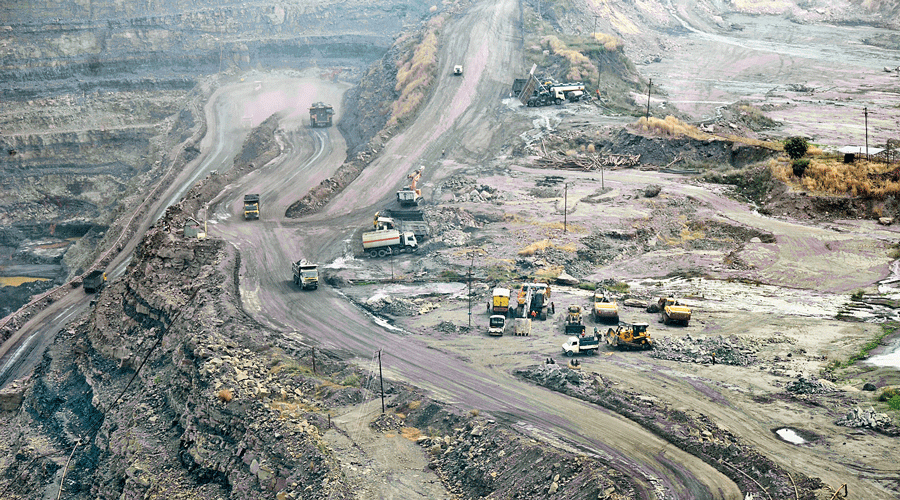Jharkhand-based Indian Institute of Technology Indian School of Mines IIT (ISM) mining engineering research unit has done research to prevent fire and explosion in mines and ensure better safety.
Associate professor of mining engineering department of the Dhanbad-based tech cradle, Devi Prasad Mishra, conducted the research on pulverised coal that can help to increase the safety of coalmines from the perspective of spontaneous combustion and explosion and risk management of coalmines.
The outcome of research titled “Physico-Chemical Characteristics of Pulverised Coal and their interrelations — a spontaneous combustion and explosion perspective”, can also have applications with regard to safety and risk management of process industries and utilities sector dealing with pulverised coal.
“The research project worth Rs 21.45 lakh was funded by the Science and Engineering Board of Department of Science and Technology (DST) and been conducted by Dr Mishra as a team in association with a faculty of mechanical engineering department of IIT (Madras) V. Raghavan between 2017 and 2020 and was released to the media on Monday,” said dean media and branding IIT (ISM) Rajni Singh.
The research findings helped the team to get knowledge about the particle size, exposed specific surface area and gas adsorption characteristics of coal of various particle sizes that in turn facilitated the mine management to take appropriate measures to prevent the occurrence of spontaneous combustion, mine fires and explosion in coal mines.
The study during which vivid investigation of coal samples collected from different mines of Steel Authority of India Limited (SAIL), Singareni Collieries Company Limited (SCCL) besides the mines owned by different subsidiaries of Coal India Limited (CIL) including Bharat Coking Coal Limited (BCCL), Central Coalfields Limited (CCL), Eastern Coalfields Limited (ECL), Northern Coalfields Limited (NCL), Western Coalfields Limited (WCL), South Eastern Coalfields Limited (SECL), Mahanadi Coalfields Limited (MCL) and Western Coalfields Limited (WCL) were analysed and the interrelations between the parameters from spontaneous combustion and explosion perspective.
“This research generated insightful coal characteristics data of pulverised coal which can be useful for furthering research on spontaneous combustion and explosion involving pulverised coals,” said Mishra whose research
interest is in mine ventilation and environmental engineering; mine fire and explosion; Environmental Engineering; Methane Drainage, coal bed methane, stowing backfilling with fly ash/pond ash; characterization of fly ash/pond ash.
“This research can be extended to coarser mine size coals, which are generally found in goaf (mined out) areas of underground mines, coal stacks and waste dumps and prone to spontaneous combustion” further opined Mishra while highlighting the need for further research in the area.
Elaborating on the advantages of the research Mishra said: “This unique study which led to better understanding of the physio-chemical characteristics of pulverised coal also revealed the variations of bulk density, specific surface area and gas adsorption characteristics of coal with particle size.”
“The relationship developed in this research can help to determine the bulk density and specific surface area of pulverised coal of known particle size,” summed up the associate professor.











